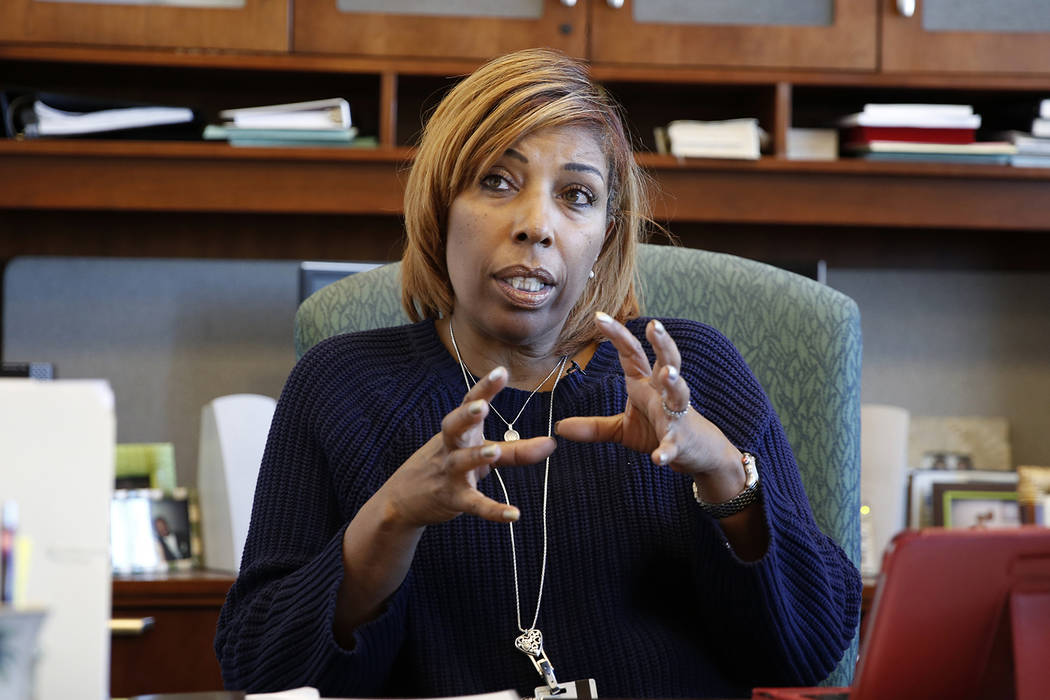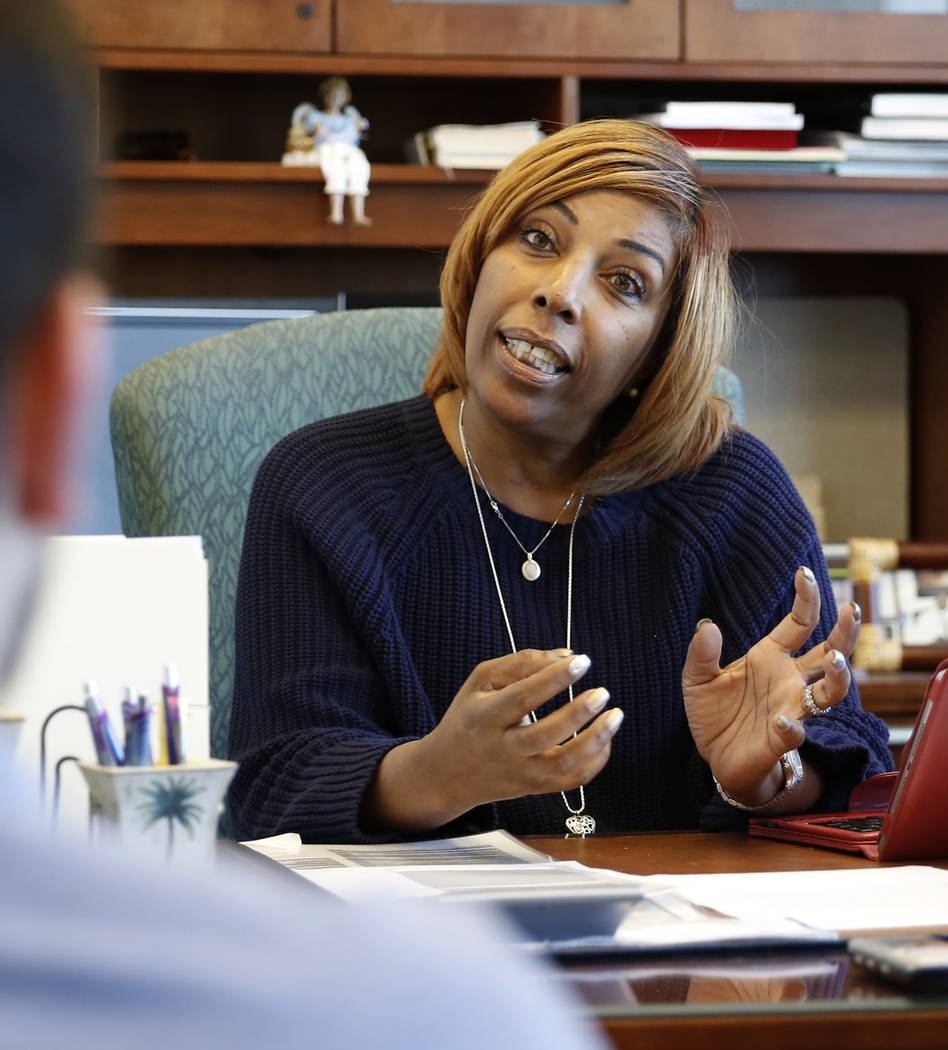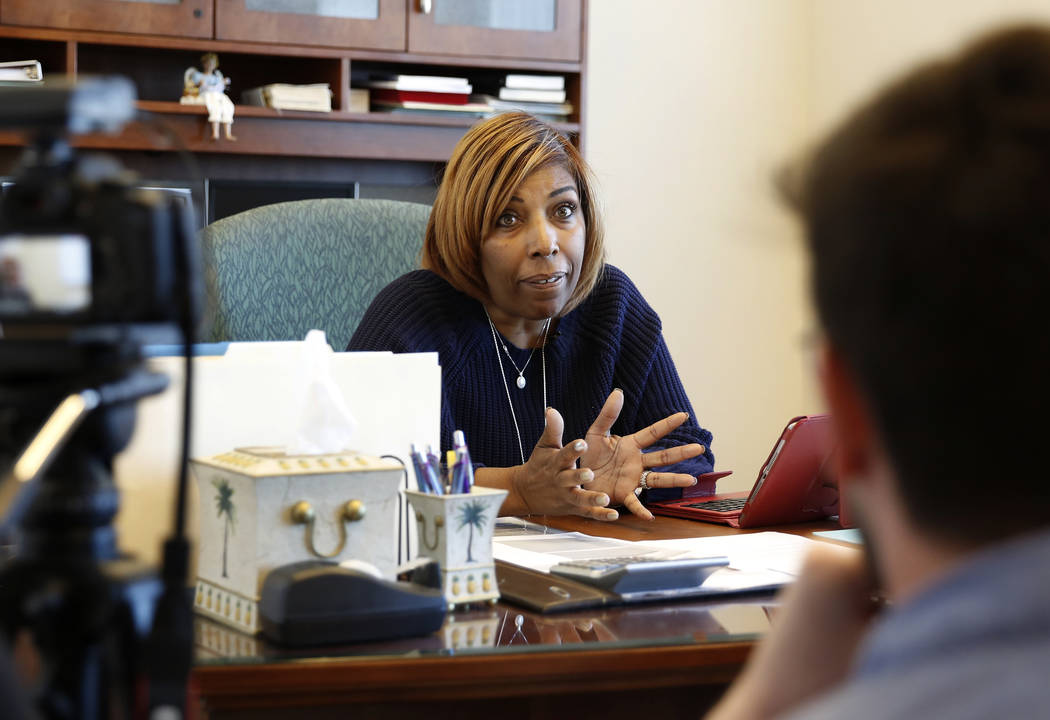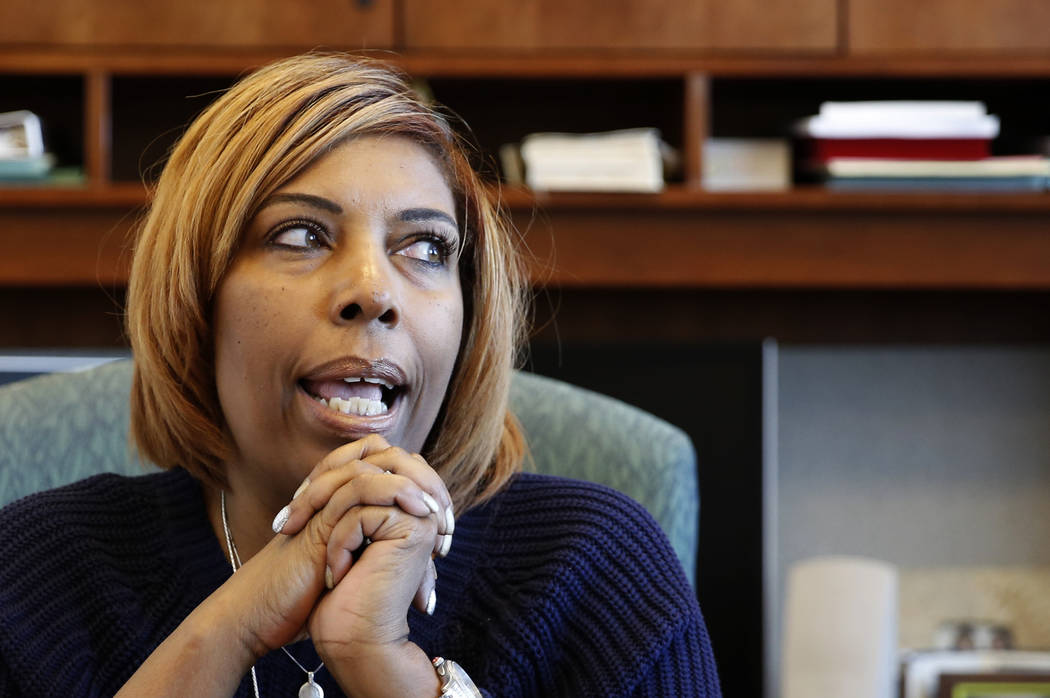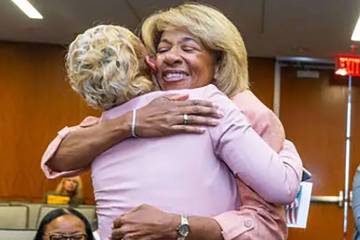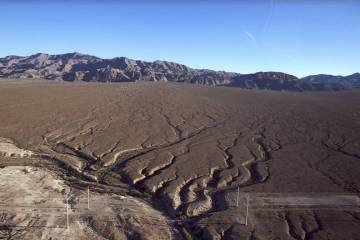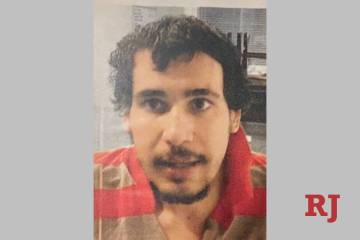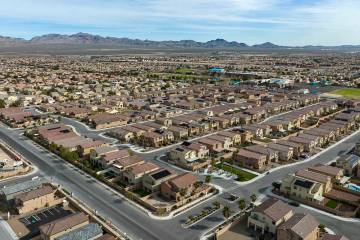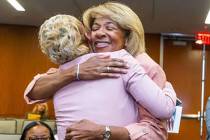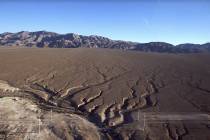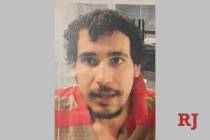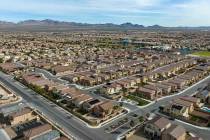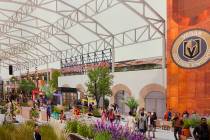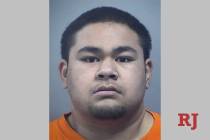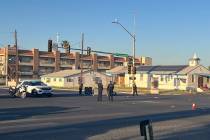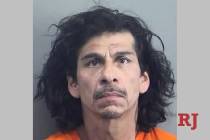Daughter of Las Vegas pastor shares insight on civil rights role
Growing up the daughter of the pastor at Las Vegas’ oldest black congregation left an impression on Karen Bennett-Haron.
Over the years, her father, the Rev. Marion D. Bennett Sr., taught her the importance of public service and of working to better the lives of others.
Today, she, too, has devoted herself to public service. Bennett-Haron became the first black woman appointed to the state’s judicial system in May 2002, when she was appointed to the Las Vegas Justice Court.
Bennett instilled in her many of the lessons he learned coming of age in the civil rights era: not to hate others, never to apologize for who she is and to remember that black Americans deserve a seat at the table in a country they helped build. And, of course, her faith.
“Not so much because he was a preacher, but because he lived it,” Bennett-Haron said, “and he didn’t mind making the sacrifices for it.”
Now, 50 years after Martin Luther King Jr.’s assassination, Bennett-Haron offered insight into her father’s role in helping bring King to Las Vegas and in civil rights in Southern Nevada.
During an interview inside the judge’s chambers in late March, Bennett-Haron sat behind her desk, where a framed picture of her smiling father faced her.
“He’s a guy that I’m pretty proud of,” she said.
Bennett led the congregation at what is now Zion United Methodist Church for more than 40 years, turning it into a west Las Vegas institution through his work as a pastor, assemblyman and chair of the local NAACP chapter.
Before coming to Las Vegas, Bennett joined the civil rights movement while a college student in Atlanta. His time in the movement helped ingrain his devotion to public service, which he practiced in the Las Vegas Valley when he became Zion’s preacher in 1960, Bennett-Haron said.
Her father, a follower of King and his colleagues fighting for civil rights, worked to amplify the message that black people are worthy of participating in the greater good of society.
In those days, individuals involved in the movement often stayed at her house, she said.
“Our house was a revolving door for a whole lot of folks,” including civil rights leader Julian Bond, Bennett-Haron said.
Her father’s devotion to King and the civil rights movement showed through his dedication to bettering the lives of Las Vegas’ black residents within and outside the confines of Zion, Bennett-Haron said.
King’s speech
Many still revere Zion for its role, especially during the civil rights movement.
“That church was a great beacon of hope and light in the community,” said Ida Gaines, a former member of the congregation.
Gaines recalled singing as part of Zion’s choir during King’s speech at an NAACP banquet, one of two speeches he gave in Las Vegas.
Bennett helped influence King’s lone visit to Las Vegas and welcomed him upon his arrival, Bennett-Haron said. He reached out to King, with whom he marched in the 1960s, through some prior relationships in Atlanta, she said.
Many white residents and those looking to preserve the status quo feared the civil rights leader’s visit, she said, as segregation still permeated the city, limiting opportunities for black residents.
“There was a lot of backlash, from what I understand,” Bennett-Haron said.
But the sold-out banquet speech was largely uncontroversial, she said. The visit raised the NAACP chapter’s profile in the community, which the chapter parlayed into more opportunities to improve the lives of those within the black community, Bennett-Haron said.
Her father, who died in July 2013, continued to strive to strengthen opportunities for black residents, including pushing for the recruitment of black educators and for investment in local black businesses.
‘The church is in your heart’
Last summer, Zion suffered a dramatic setback when a fire burned for nearly five hours at its location at 2108 Revere St.
The congregation has been working to create a new home since the June 6 fire gutted much of the church. Not all of the building was destroyed, but leaders are planning for a new building at the site, trustee chairman Charlie Blake said.
Church leaders hope to break ground on a “new Zion” for future generations by the summer’s end, Blake said.
“The building is a building. The church is in your heart,” he said.
Zion celebrated its 100th anniversary in November. But it didn’t move to the Revere Street location until the 1960s.
The church was founded in 1917 near Casino Center Boulevard and Ogden Avenue, where it hosted the city’s first black congregation and remained until 1945. In 1960, Bennett, who was 27 at the time, was recruited to be the pastor for Zion, then located near G Street and Washington Avenue.
Upon arrival, Bennett decided the congregation needed a larger building and to work toward financial self-sufficiency as a church and as individuals, church historian Lucille Bryant said.
“We didn’t know God had sent us somebody,” Bryant said. “A man with a vision. A vision for the future.”
The congregation worked hard to raise money to buy land for the new Revere Street church, where the first service was held on Palm Sunday 1967, Bryant said. The new church included an educational facility, a low-cost day care facility and a kitchen.
“He wanted Zion to serve the community, to be the community church,” Bennett-Haron said of her father.
Still no cause
The cause of last year’s fire has yet to be determined.
A federal investigation by the Bureau of Alcohol, Tobacco, Firearms and Explosives is ongoing, ATF spokeswoman Alexandria Corneiro said. It wasn’t clear when the investigation would be complete.
Not knowing the fire’s cause is frustrating, Blake said, but the church continues to hold services at the Nevada Partners offices, just south of the burned building.
“A day will come when we can put all this stuff behind us,” Blake said.
^
Contact Mike Shoro at mshoro@reviewjournal.com or 702-387-5290. Follow @mike_shoro on Twitter.



